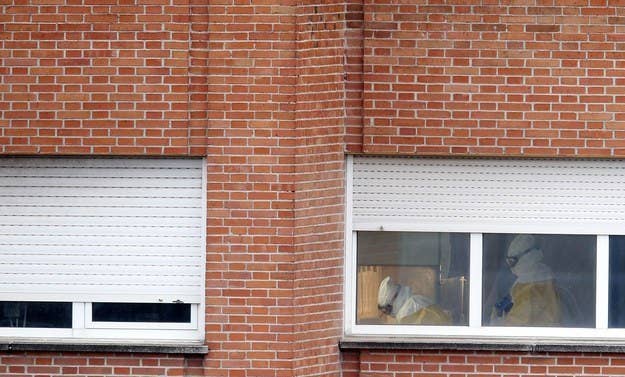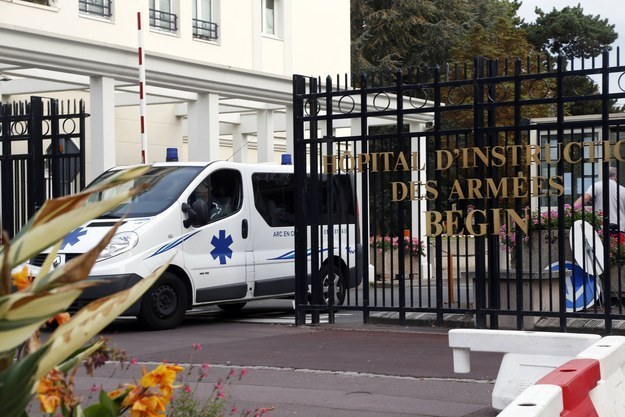
Before Ebola came to the U.S., leaving one man dead and two health care workers infected, it was in Spain — where a nurse treating infected priests in a Madrid hospital contracted the disease last week.
That, along with the second transmission in the United States — and an admission from the CDC that protocol in Dallas, Texas, was not enforced properly — is forcing other Western countries to release information about their preparations for the disease.
The United Kingdom claims to be "among the best and most-prepared countries in the world."
Secretary of State for Health Jeremy Hunt on Monday gave an update to the House of Commons on just what the U.K. is doing to prepare for an Ebola case on the British Isles.
"All ambulances are equipped with personal protective equipment (PPE)," Hunt explained. Patients suspected of having Ebola will be isolated in the nearest hospital, he explained, with a blood sample sent to Public Health England's specialist laboratory for rapid testing.
"If they test positive for Ebola they will then be transferred to the Royal Free Hospital in north London, which is the U.K. specialist centre for treating the most dangerous infectious diseases," Hunt said, adding there are plans "to activate Ebola bed capacity in Newcastle, Liverpool, and Sheffield, making a total of 26 beds available in the U.K." Hunt didn't provide detail, however, on how long that capacity would take to be stood up.
"We will always follow medical advice as to whether any measures we adopt are likely to be effective and are a proportionate response to risk. However, I believe that we are among the best and most prepared countries in the world."
France has 12 hospitals prepared to take in potential Ebola cases.

They were chosen, France's Ministry of Social Affairs, Health, and Women's Rights said, based on "on-site evaluations conducted by the regional health agencies." In total these hospitals have 41 beds between them for possible patients, either in isolation wards or intensive care units.
Germany is touting nine "highly specialised treatment centres."
The government's plan for preventing the spread of Ebola involves the use of nine "highly specialised treatment centres" for infected patients, where "technical measures are in place (air-locks, decontamination facilities) to prevent any accidental escape of pathogens into the environment."
"In all suspect cases that have emerged in Germany so far, the collaboration of the agencies involved at Federal and Land level was so good as to prevent any conceivable infection through timely isolation measures," Federal Minister of Health Hermann Gröhe said in a statement published in late September. "In all of the cases involved, it was possible, within the shortest possible timeframe, to rule out any real infection with the Ebola virus."
Italy has two facilities, one in Rome and one in Milan, prepared to treat Ebola victims.

But the European Union does have some concerns.
In a fact sheet released on Wednesday, the European Commission noted without naming names that there could be "further challenges for some Member States in access to treatment facilities, transport of patients, availability of laboratories, expertise and resources."
On the whole, though, the European Centre for Disease Prevention and Control (ECDC) has assessed that most of Europe's countries "seem to be well-prepared."
